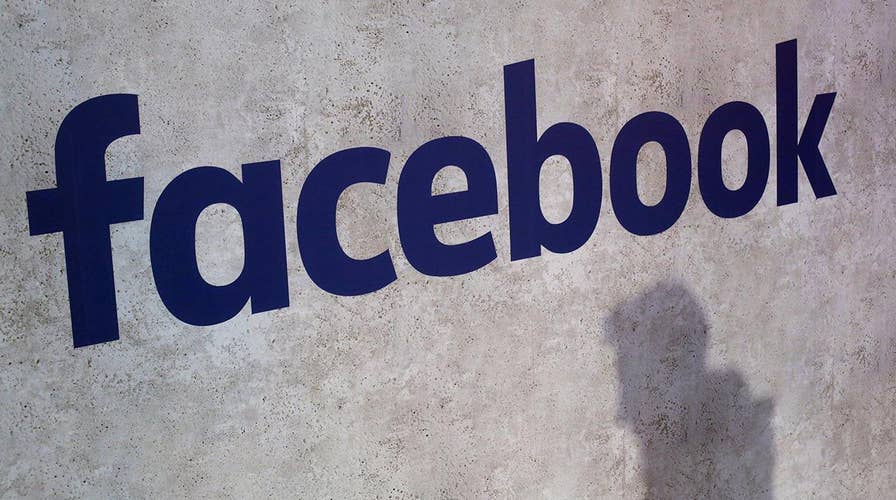Mark Zuckerberg's staunch defense of Facebook’s business model and actions in a recent Wall Street Journal op-ed revealed more than ever the negative impact the company continues to have on society and us as individuals.
Unfortunately, the op-ed offers little reassurance to anyone uneasy about the company’s intrusion into their privacy. Zuckerberg touts the company’s “transparency tools” -- which purportedly show Facebook users why they're being targeted by certain ads -- but knowing that your social interactions are being monitored doesn’t make it less creepy. An entire system built on knowing what every single user does on its platform (and beyond) is invasive and not what most people signed up for or understand.
I’m sure that mass surveillance was not the vision when Facebook was conceived in a Harvard dorm room 15 years ago, but it's certainly the reality now.
OUTRAGE OVER FACEBOOK'S USE OF TEENS TO SPY ON RIVALS AS SANDBERG SAYS THEY 'CONSENTED'
No rhetorical sleight of hand, such as Zuckerberg’s disingenuous claim that “we don't sell your data,” can obfuscate that fact. His claim makes a technical distinction. Obviously, Facebook does not part ways with the data we give it in exchange for money from advertisers. They hold onto this precious commodity and sell insights into who we are and what we do to advertisers, treating it as a renewable and recyclable resource.
Indeed, Facebook’s business model relies on amassing as much personal information as possible. Zuckerberg admits this in his piece, saying Facebook aims to collect “what pages people like, what they click on, and other signals.” The latest illustration of this intent appeared in a recent New York Times report that Facebook plans to integrate Facebook Messenger, Instagram and WhatsApp into a unified platform, which will dramatically increase their holistic knowledge and insights of users and their behavior.
Facebook does not part ways with the data we give it in exchange for money from advertisers. They hold onto this precious commodity and sell insights into who we are and what we do to advertisers, treating it as a renewable and recyclable resource.
All of this is emblematic of Apple CEO Tim Cook’s stark warning that we have allowed companies to create a “data industrial complex” in which “companies know you better than you may know yourself.”
Let’s not be fooled or distracted by semantic debate. We are being monetized and sold.
There is a better way. Just like any service, and especially with social networks, there should be a clear business model where the user is the customer, not data buyers. Social networks should come with controls that protect and respect their users. Despite Zuckerberg’s protests to the contrary and straw man arguments, Facebook fails this simple test.
We get on social networks to share things with our family, friends, and other people in our lives. We don’t get on them to become data points. As long as Facebook makes money by plundering our photos, our likes, our friends, our comments, our memories, our time - they will continue to be led by a financial incentive that will never be aligned with its users’ interests. They will continue to build a platform designed with the sole purpose of getting as much data as possible and selling it for as much profit as possible.
Over the past 15 years since Facebook was created we have been conditioned to believe that sacrificing our privacy for the convenience of a free service is just how things work. People are now breaking out of this mindset, recognizing there is a heavy cost to “free” -- and that it doesn’t have to be this way.
Social media platforms don’t need to collect our information to be sustainable. They can be built with users’ best interests in mind and respect their privacy. They should reward authentic and organic content instead of bots, fake accounts, and those who manipulate the algorithms.
I truly believe that social networks can be an important force for good and a way to bring people closer together. So much so that I created Vero and am committing the next five years and millions of dollars of my own money to solving this problem because I just know we deserve better.
Vero doesn’t mine our users’ data, relying instead on an affordable subscription model to sustain it. Our goal is to enable connections with each other and do so in a considered and transparent way.
CLICK HERE TO GET THE FOX NEWS APP
It’s a pity that Zuckerberg seems more focused on making excuses while refusing to change. Whether it’s giving third parties access to users’ private messages or duping teens into using spyware, this is business as usual at Facebook. No amount of profit or op-eds can paper over the fact that the company’s business practices are built to exploit you.
It’s a good thing they’re no longer the only game in town.









































